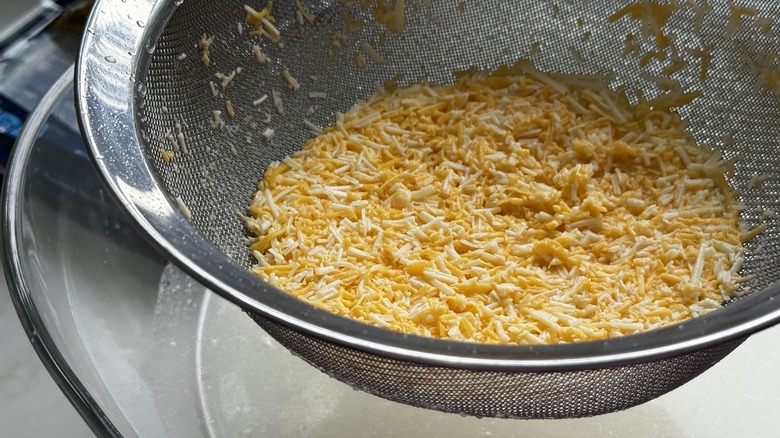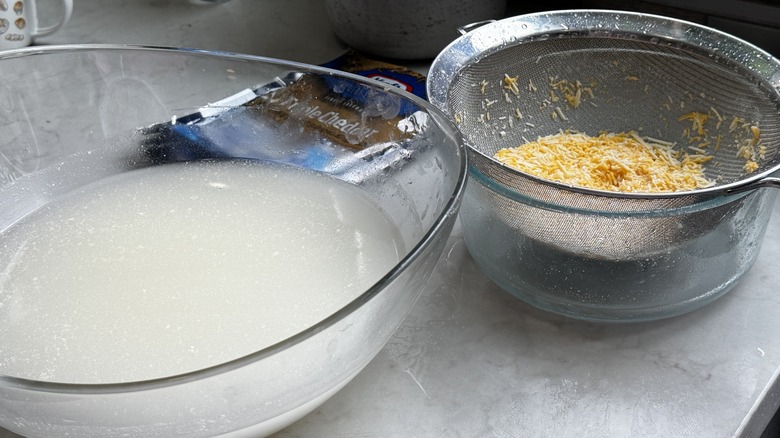Do You Really Need To Wash Your Shredded Cheese? We Tested The Trend
Across social media, foodies, content creators, and food influencers have been washing their store-bought shredded cheese just like they would their veggies and fruits. They do this because packaged shredded cheese is made with anticaking agents. For example, Tillamook uses potato starch to "prevent caking." Sargento uses powdered cellulose, which is a refined wood pulp. Lucerne uses both tapioca and potato starch. Other anticaking agents can include calcium sulfate (a component in cement). While these additives keep the shredded cheese from sticking and lumping together, they aren't usually things I like to ingest raw.
Since everyone is washing their packaged shredded cheese, as a dedicated food journalist and content creator, I had to hop on the trend and see if there's a myth to debunk and answer the question: Do we really need to wash our shredded cheese? I added half a bag of Kraft's "finely shredded triple cheddar natural cheese" to a colander and placed it over a clear bowl. Then I poured clear filtered water over the cheese, and in seconds, the water became cloudy and murky, with particles floating all over.
I then rinsed the wet shredded cheese with cold water from the sink. The water pooling beneath the colander was also gray and murky. What in the Kraft cheese made my clean, filtered water so cloudy? Immediately, I thought we absolutely needed to wash our store-bought shredded cheese.
Always check the labels of your shredded cheese to see which anticaking agents are used
It's always important to look at and decode food labels. The back label of my Kraft shredded cheese package clearly states, "...modified cornstarch added to prevent caking." Essentially, all the cornstarch I had washed off the shredded cheese turned the water murky and cloudy. I was left with two large bowls of "cornstarch slurry" water and a lot of wet, unappetizing cheese that will probably mold up fast since it's moist. Cornstarch, by the way, is a food-safe ingredient that can be ingested raw in small amounts. I like to eat raw shredded cheese, so I wondered how much cornstarch was in that cheese to make my water so darn cloudy.
I scanned the Kraft label again and couldn't find the words "cellulose" or "calcium sulfate." One ingredient that stumped me was "natamycin," which Kraft labeled "a natural mold inhibitor." According to past studies, natamycin is a food-safe and natural food preservative.
After washing the cheese, I microwaved it for 10 seconds, and it quickly melted into a thin, cheesy liquid. It makes sense since cornstarch is also a thickening agent. So, while I felt better knowing the only anticaking agent Kraft uses in my bag of shredded cheese is cornstarch, I can't help but feel like shredding my own hard and sharp cheeses from now on. After all, freshly shredded cheese is an easy way to switch up sandwiches.

